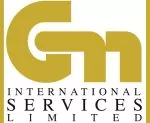The EU maritime industry can finally breathe a sigh of relief and savour a much needed victory for common sense. Towards the end of last week reliable sources began confirming that EU State Guidelines will remain unchanged. Although the decision took longer to be reached than was desirable, its significance is immediately apparent to all those in the industry – the tonnage tax regime is here to stay...at least for now. This was further confirmed by Mr Karamitsos* during his speech at Maritime Cyprus 2013. This is definitely very encouraging news, not only for major EU flag States such as Malta, but for the EU maritime industry as a whole. The uncertainty that arose due to the EU Commission investigation into the tonnage tax regime was not only of concern to flag States but also to other stakeholders such as shipowners who had serious concerns that during these testing times their profitability would be negatively impacted even further.
The determining factor of the EU Commission's 2nd October decision was the realization that the current approach has had positive effects on employment and competitiveness. Apart from this truth, it is also imperative to understand that changing the EU State Aid Guidelines in any way that alters the premise on which the tonnage tax regime is structured, would only serve to encourage the deregistration of tonnage from EU Member State flags to non EU flags.
The EU Commission had originally adopted the community guidelines on State aid to maritime transport in order to provide Member States with harmonised measures for community flag vessels, to stimulate the competitiveness of the maritime industry and encourage shipowners to register their vessels under EU Member State flags. By and large, these goals have and are being achieved and the tonnage tax regime has been a key aspect in making EU flags competitive. The tonnage tax regime has also been a factor in increasing employment, both on-shore and off-shore, contributing to the economic activities of the maritime cluster as a whole. It comes as no surprise therefore that so many EU stakeholders submitted lengthy and in depth reports to the EU Commission throughout this whole process, arguing in favour of leaving the EU State aid guidelines unchanged.
As we watch things unfold and await a statement from the EU Commission, one can't help but wonder if there are going to be any provisos to this decision. Should this be the case, the importance of this decision will be tainted, as what the industry needs at the moment is stability. Wondering whether this issue could be rehashed a few years down the line will do little to prevent shipowners from considering non-EU flag States.
The content of this article is intended to provide a general guide to the subject matter. Specialist advice should be sought about your specific circumstances.

